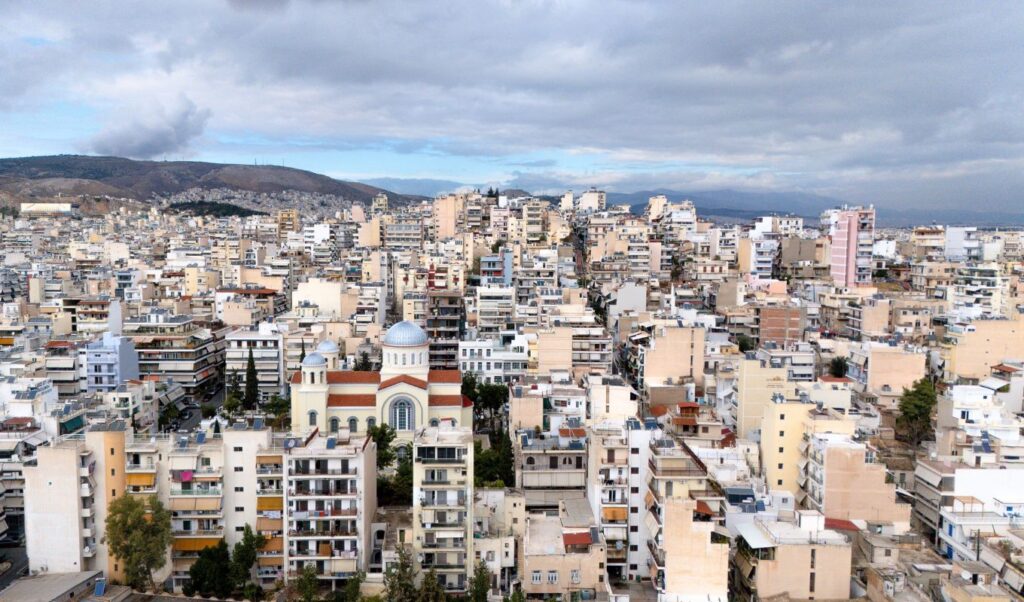The Greek government is moving forward with an innovative program to utilize public real estate for the creation of social housing, through the new institution of social exchange. The initiative aims to cover the housing needs of vulnerable social groups and is expected to radically change the landscape of housing policy in the country.
Yesterday, Wednesday 30/07, the draft law by Minister of Social Cohesion and Family, Domna Michailidou, titled “Social Exchange, Social Rental, Third Child Status and other provisions” was put to public consultation. The consultation period ends on Wednesday, August 20.
Strategic planning for social housing
The new Government Housing Policy Committee has set ambitious goals for the next 18 months. Priority is given to maturing public properties designated for the social exchange program and launching the first tenders for social housing construction.
Each ministry is called upon to contribute to the effort by offering three to five properties suitable for social housing development. These properties must have a built area of at least 1,500 square meters, with exceptions for island and tourist areas.
Social exchange mechanism operation
The program includes the utilization of built and undeveloped properties from the private assets of the State or local authorities. The work may include:
• Construction of new multi-story buildings or independent structures
• Renovation and repair of existing buildings
• Demolitions or property use changes
• Regularization of incomplete registrations in land registry offices
All work is executed with the exclusive responsibility, expense and means of the private contractor.
Available properties and implementation targets
HRADF and the Superfund have 6,500 properties at their disposal that have been deemed suitable for the program. Of these, 1,000 properties will enter the market immediately in the coming months.
The overall target is the creation of 25,000 homes or buildings for residential use, with 10,000 of these to be delivered immediately. 60% of the new social housing will be built in Athens and Thessaloniki, within the framework of integrated public property management policy.
Forms of compensation for contractors
Private contractors can choose between different forms of compensation for their services. Specifically, they can acquire part of the housing they construct, exploitation rights for a specific time period, management fees, or revenue from resale and rental.
Special provision exists for contractors who undertake complete construction of new buildings or reconstruction of old ones. They are required to allocate 30% of the housing to the State for social policy purposes, while they freely utilize the remaining 70%.
Who are the beneficiaries of social housing
Social housing beneficiaries are selected by OPEKA based on social criteria including income, family and property status, and children’s ages. From the moment of rental and for its duration, beneficiaries will not be entitled to housing allowances or other benefits for covering housing needs. A particular innovation is the possibility of purchasing the home after ten years through a “rent to own” contract, with notarial deed and without registration fees.
Rent levels will be substantially lower than commercial market prices for properties of comparable quality. The maturation process for each project will include an economic-technical study evaluating optimal property utilization, minimum social housing percentage (at least 30%), management duration, contractor transfer percentage, and investment viability. Tender documents will detail all property characteristics, rental terms, technical requirements, accessibility for disabled persons, and minimum and maximum ownership percentages transferred to the contractor.
Selection procedures fall within the framework of strategic importance contracts, according to current legislation for public investments. Additionally, an electronic Registry of Social Exchange Contracts will be established, maintained by the General Secretariat for Demographic and Housing Policy, recording detailed execution progress of each project, number and distribution of social housing per area, already rented and available housing, as well as final beneficiaries.
The draft law also includes the concept of social rental, concerning direct property rental from public entities to vulnerable groups, without necessarily involving private contractors or construction projects. In this case too, rent will be low, criteria social, and beneficiary selection centralized. Funding possibilities from European programs are also provided, along with special exemption arrangements from classic State property rental provisions.
The first list
The first list of properties that can be utilized more quickly under the new draft law is already ready. Notable among these is the former HROPEI industrial complex, owned by EOF, at 62 Piraeus Avenue in Piraeus, covering 17,893 sq.m., which includes listed buildings and has immediate redevelopment prospects. Also in the first group of public entity properties for utilization are two EFKA plots in Argyroupoli on Cyprus Avenue, totaling 2,375 sq.m., the former Anatolia factory in Nea Ionia with 18,000 sq.m. buildings owned by HRADF, and the historic YFANET in Toumba, Thessaloniki, covering 19,500 sq.m., currently under occupation. With the new institutional framework, the State attempts to create an alternative mechanism for housing production and distribution, utilizing inactive public assets in a model combining social targeting with private sector participation. If implementation proves effective, it could mark the beginning of a new era in Greece’s social housing policy.




